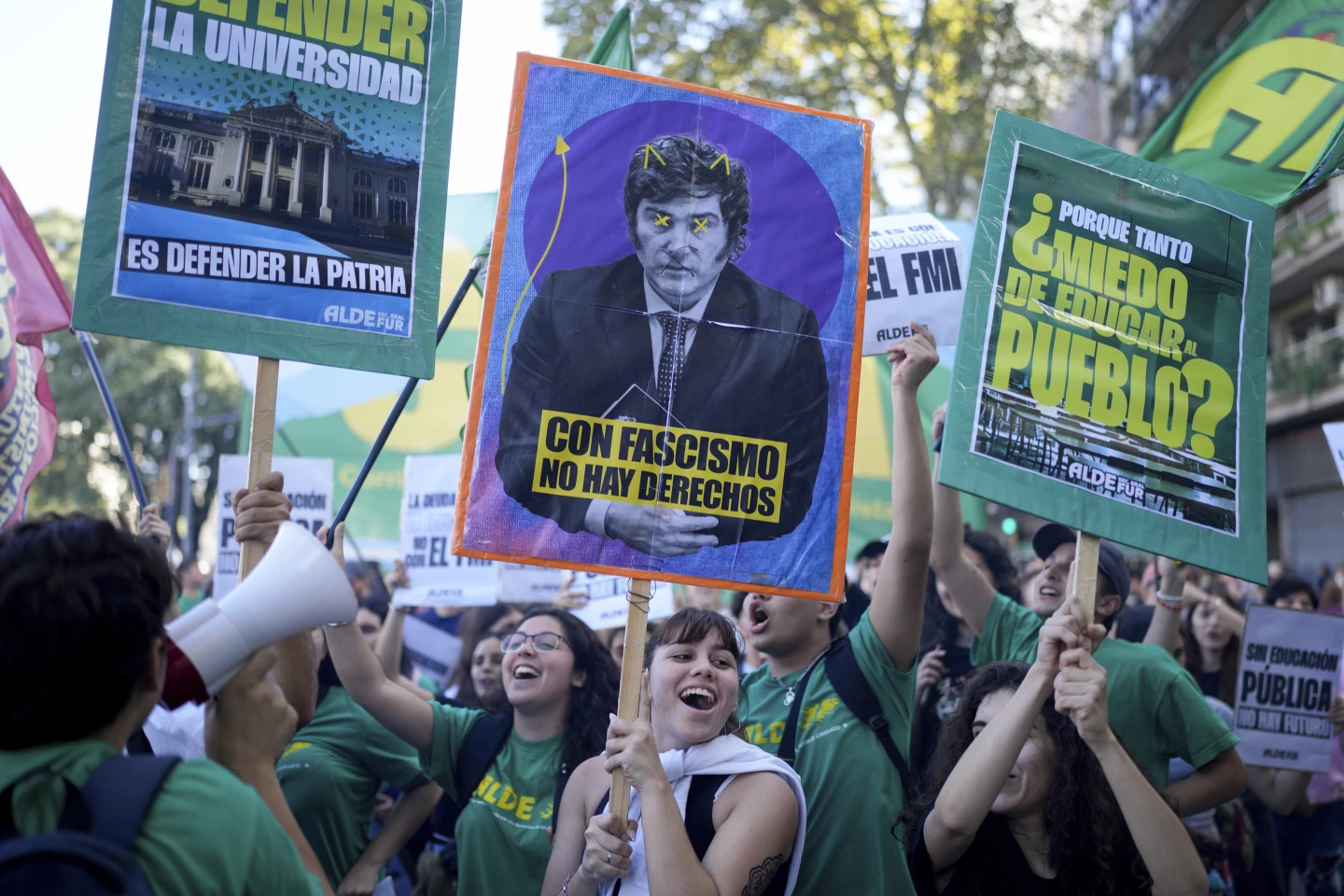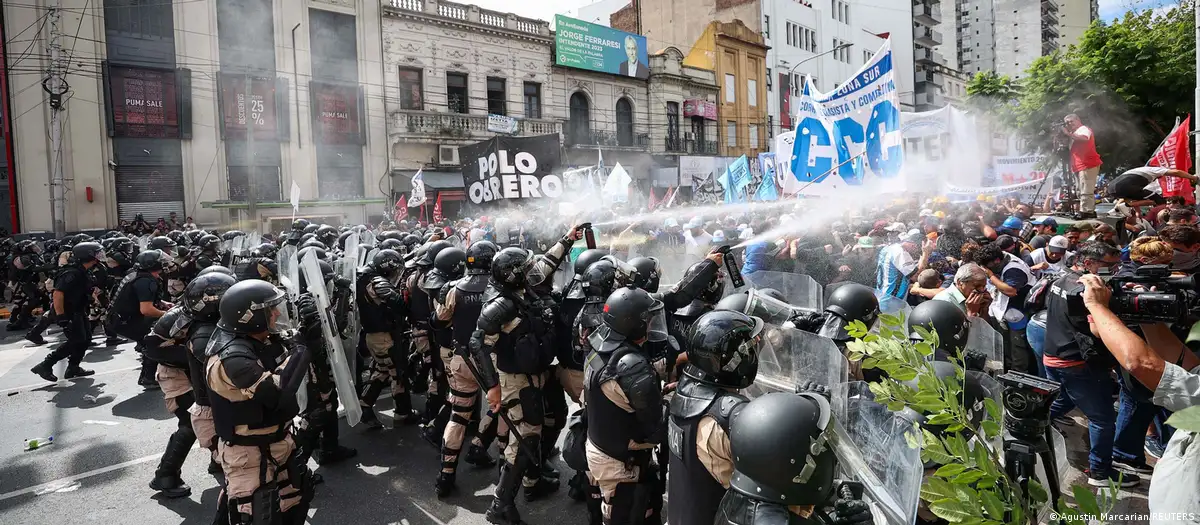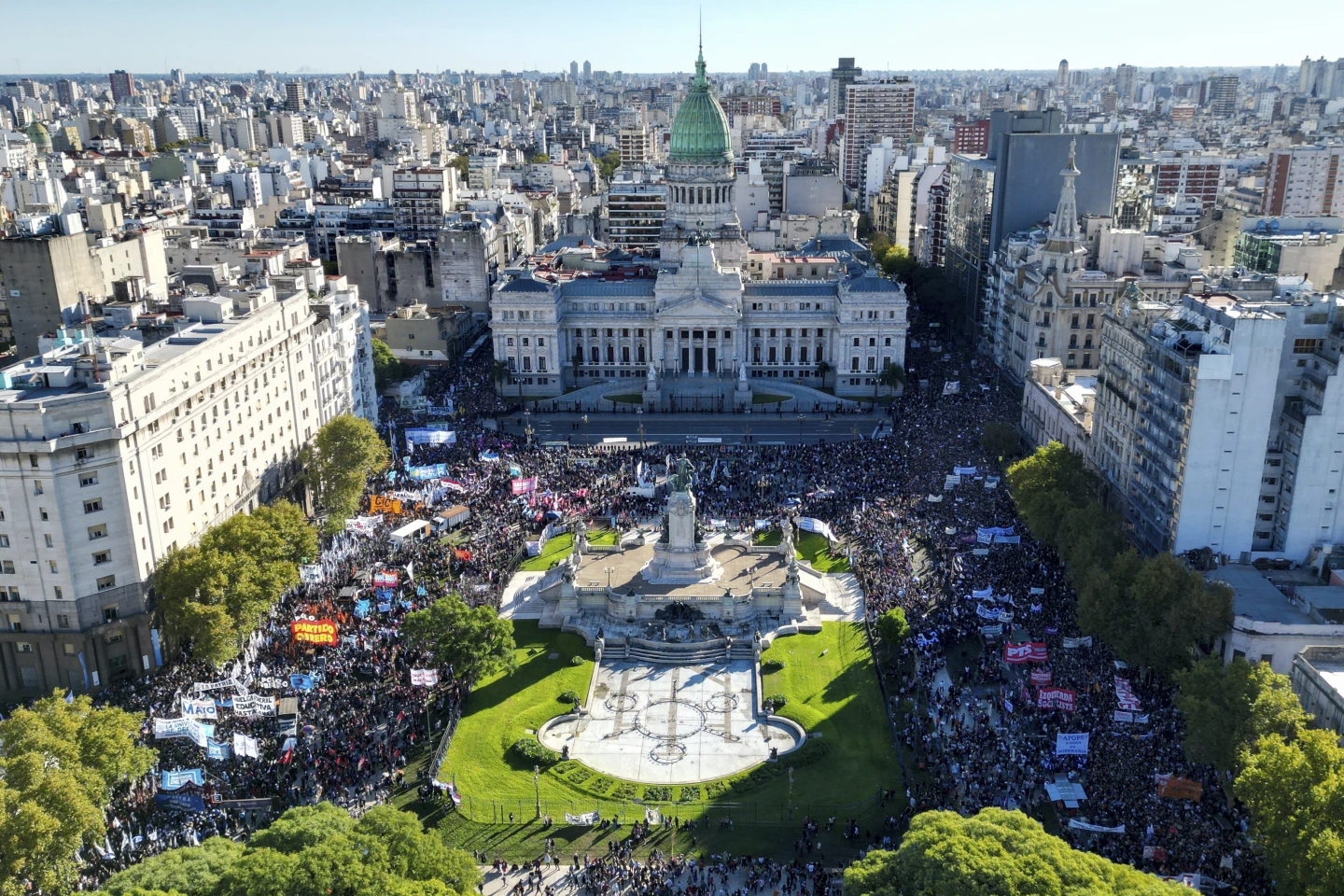Hundreds of thousands of Argentineans, many of whom are students, took to the streets of Buenos Aires on Tuesday to protest against President Javier Milei’s economic reforms intended to revive Argentina’s struggling economy.
A March Against Government Cuts:
The protests focus on Milei’s decision to cut funding for public universities and other educational sites, much like others, which has left thousands of Argentine government workers unemployed.
Universities have reportedly been forced to cut power as the campuses are unable to pay the bill following the budget cuts, with universities being forced to cut air conditioning, the use of elevators, and even being unable to use projectors in class.
“This is an unthinkable crisis,” Valeria Anon, a literature professor protesting Milei’s budget cuts, told AP. “I feel so sad for my students and for myself.”

Students of public universities were not the only ones taking to the streets, with those from private schools joining their compatriots in the protest against the economic reforms, while some private schools also closed to show their support.
Students were joined by a plethora of activists, with unions and political figures taking to the streets alongside those seeking higher education.
“We are trying to show the government it cannot take away our right to education,” Santiago Ciraolo, a 32-year-old student, told AP during the protest. “Everything is at stake here.”
A Protest Amid Protests:
A number of protests have shaken Argentina since Milei’s ascension to office, with thousands having previously marched against Milei’s reforms in January and March as well.
Many opponents of Milei have alleged the president’s dereuglation of the economy, along with spending cuts, will lead Argentina to exploitation by both foreign and domestic corporations.
Protests in March were met with water cannons, batons, and tear gas employed by Buenos Aires police in a protest called for by unions across the country after soup kitchens revealed that they were running out of food due to the president’s cuts.

Police deployed forced dispersion tactics as protestors blocked roads and began to attack police with sticks and other improvised weapons, injuring two police officers and a journalist during the clash.
In another protest just weeks before, police again employed forced dispersion tactics after protestors clashed with supporters of Milei in front of the parliament building where the President was speaking at the time. 20 people reportedly suffered burns following the use of tear gas.
The President’s Policies:
Milei has been a controversial figure within Argentina due to what he has called his “Chainsaw Plan,” a policy intended to drastically cut down on what the President deems unnecessary government spending. This spending, Milei alleges, is the prime cause of the current economic disaster that Argentina is currently facing, further claiming that a “political caste” is responsible.
Protests against the president are common, as protestors previously attempted to prevent Milei from attending the annual Lloa Lloa Economic Forum by blocking roads leading to the secluded resort that hosts the forum. These attempts ultimately fell flat, as Milei arrived via helicopter in a move that union spokesman Rodolfo Aguiar claimed was an act of cowardice.

This blockade was originally organized to protest Milei cutting over 15 thousand public service jobs, while other concerns, such as the belief that Milei is selling Argentina to corporations, were also raised.
Aguiar alleged in a statement that Milei’s government seeks the “delivery of Patagonia (a region consisting of the southern tip of South America) to foreign powers,” before claiming in a later statement that “we are facing a program to colonize Argentina, and Javier Milei is in charge of executing it.”
Analysis:
Protests against Milei are sure to continue as the president continues his controversial “Chainsaw Plan,” which originally brought him to the headlines. However, despite a large deal of outcry regarding the president’s fiscal policy, the Argentine government announced its first quarterly fiscal surplus since 2008.
Some analysts have expressed concerns over Milei’s policies, claiming that while the economic restructuring of Argentina would surely improve the nation’s financial standing, it may still take a toll on everyday Argentineans as government aid is cut and many public workers lose their occupations.
Another point of contention is Milei’s comments on numerous public figures alongside neighboring governments, with Milei previously labeling His Holiness, Pope Francis, an “imbecile” and “the representative of malignance on Earth” while also critiquing the governments of Brazil and Venezuela.
Despite his previous sentiments toward His Holiness, Milei’s relationship with the Patriarch of the West has seemingly improved, as during the President’s visit to the Holy See to attend the first canonization of a female Argentine saint, the two were seen embracing each other and in relative good spirits.

